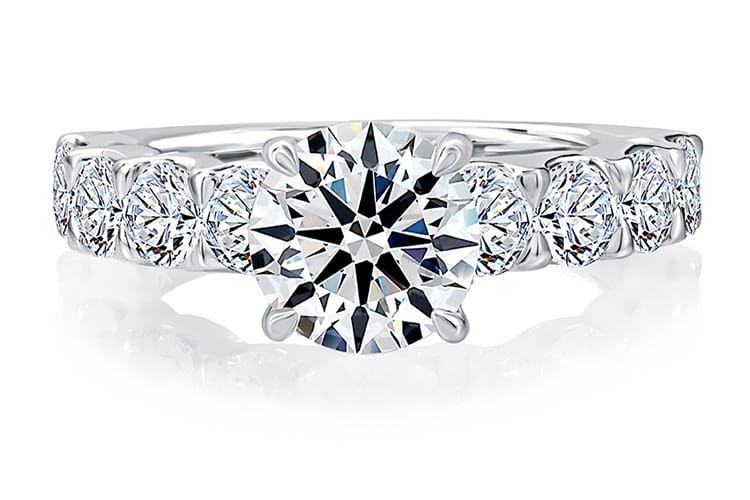Platinum Selling Cheat Sheet

“My customer didn’t ask for platinum”
That’s the best news ever!
- Just because a potential customer doesn’t come in asking for platinum doesn’t mean they don’t want it. They expect you to be their guide through a very complex and expensive process when buying the most important pieces of jewelry they’ll ever own.
- Remember – you’re not an order taker, you’re a knowledgeable professional offering the most beautiful materials in the world. Wear your knowledge proudly and offer your guests the best of the best – platinum!
- Consumer research tells us that nearly 7 out of 10 consumers will buy platinum if it’s offered to them. The main reason they don’t buy platinum is because the sales consultant never offered it to them
- If you’re currently selling platinum to fewer than 7 out of 10 guests – you’ve got an exciting opportunity to pursue!
- Offer platinum and explain why it’s the best. When you do, you’ll close the sale with platinum more often than not. 7 out of 10 sales could be platinum!
Lead with the best and you’ll never have to upsell
The term “upsell” should sound a warning bell
- If you always lead with the best, you’ll never have to upsell
- Give your guests the opportunity to buy the best products you have to offer
- Lead with platinum and explain what makes it unique and special
- If, after you’ve presented the benefits of platinum they still want to choose something else, you can move onto other materials
- If you start out at the bottom, you have to “upsell”: It’s a much tougher climb!
- Lead with the best and watch them fall in love with the best that money can buy
Special orders are worth the wait
Let’s say it’s going to take 4 weeks to special order a platinum ring and you think your customer won’t wait for that. If it’s an engagement ring, consider the things a bride-to-be happily waits for in the wedding planning process.
- A venue, entertainment, wedding favors and, especially, their wedding dress!
- Would a bride-to-be ever expect to tell a dressmaker that she has to walk out of that salon by the end of the day with her dress, or she’ll go elsewhere? Never happen, right?
- Why? The dressmaker has managed the customer’s expectations and effectively communicated the fact that her custom-made dress for the happiest day of her life is worth the wait.
- Platinum is worth the wait.
- Let your customer know that their platinum ring is being hand-crafted just for them. It’s the most special pieces of jewelry they’ll ever own and that’s worth the time it takes to create these symbols of love they’ll wear every day of their life
Platinum misconceptions explained
Consumer Misconception: Platinum DULLS
Platinum is a naturally occurring white metal that develops a satiny patina over time. White gold, on the other hand, is actually yellow gold that was mixed with other metals and then plated with rhodium to appear white. When the rhodium plating wears away it may develop a yellow tinge over time.
Consumer Misconception: Platinum is too SOFT
Platinum is one tough metal. In fact, it’s much stronger and denser than gold. With a high concentration of platinum in its alloys, platinum is known for its ability to withstand daily wear without thinning. That’s why it’s the industry standard for a diamond’s setting.
If you believe that Platinum is too soft, perhaps you’ve experienced platinum pieces that were not created with the correct alloy, thereby weakening the metal’s intrinsic durability.
The best all-around alloy for use in most manufacturing processes is currently 95/5 Ruthenium. 95/5 Cobalt is also a good alloy for platinum casting. There is one alloy, however, that should not be used in casting and that’s 95/5 Iridium. It’s too soft and may likely result in bent prongs, misshapen shanks and overall poor wear performance. When retail jewelers or consumers see a damaged piece of jewelry made with this alloy it can lead them to the conclusion that “platinum is too soft.” That’s not the case. The poor performance of those pieces has nothing to do with platinum and everything to do with the alloy used in the making of those pieces.
Source: Platinum Guild USA